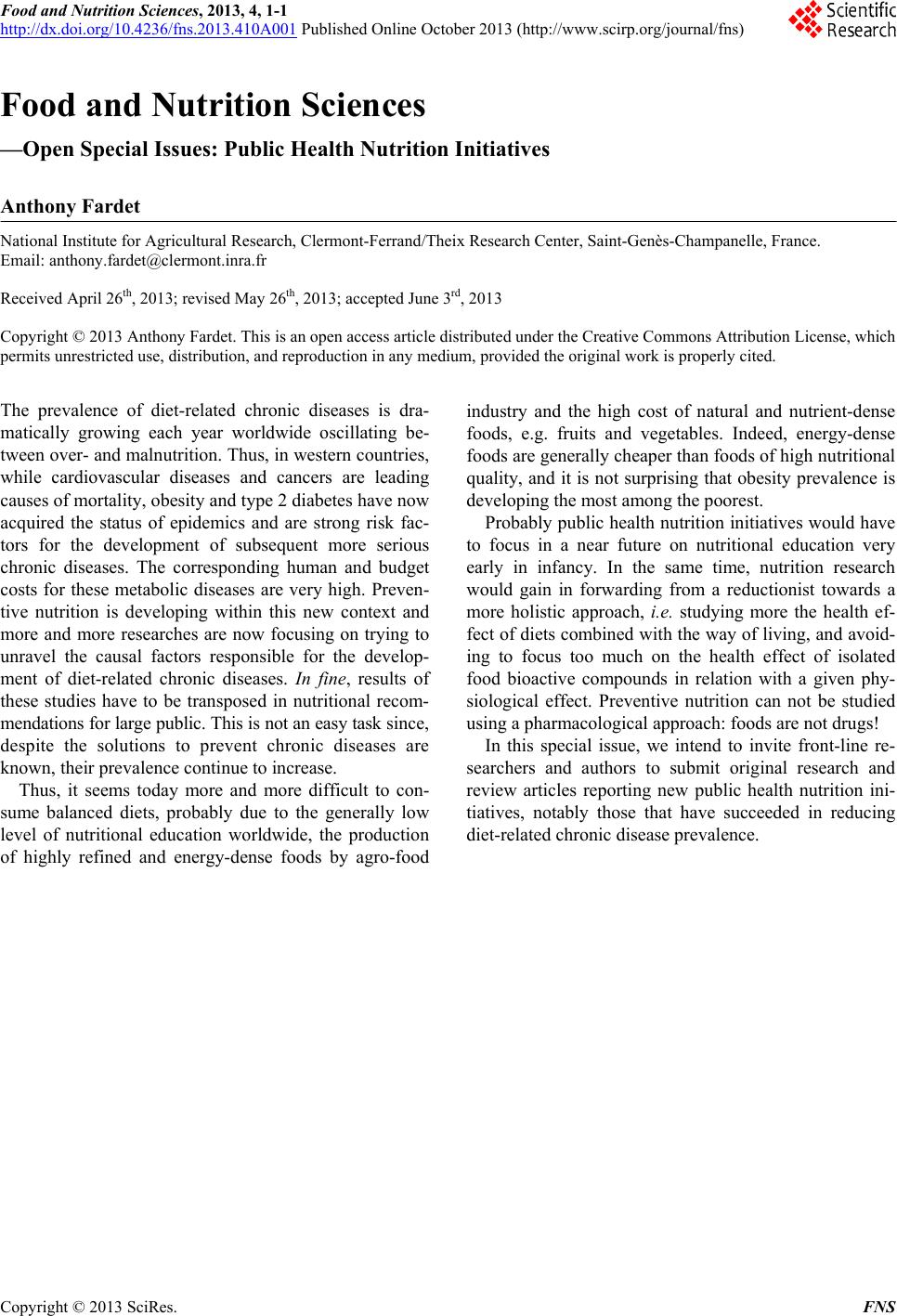Paper Menu >>
Journal Menu >>
 Food and Nutrition Sciences, 2013, 4, 1-1 http://dx.doi.org/10.4236/fns.2013.410A001 Published Online October 2013 (http://www.scirp.org/journal/fns) Food and Nutrition Sciences —Open Special Issues: Public Health Nutrition Initiatives Anthony Fardet National Institute for Agricultural Research, Clermont-Ferrand/Theix Research Center, Saint-Genès-Champanelle, France. Email: anthony.fardet@clermont.inra.fr Received April 26th, 2013; revised May 26th, 2013; accepted June 3rd, 2013 Copyright © 2013 Anthony Fardet. This is an open access article distributed under the Creative Commons Attribution License, which permits unrestricted use, distribution, and reproduction in any medium, provided the original work is properly cited. The prevalence of diet-related chronic diseases is dra- matically growing each year worldwide oscillating be- tween over- and malnutrition. Thus, in western countries, while cardiovascular diseases and cancers are leading causes of mortality, obesity and type 2 diabetes h ave now acquired the status of epidemics and are strong risk fac- tors for the development of subsequent more serious chronic diseases. The corresponding human and budget costs for these metabolic diseases are very high. Preven- tive nutrition is developing within this new context and more and more researches are now focusing on trying to unravel the causal factors responsible for the develop- ment of diet-related chronic diseases. In fine, results of these studies have to be transposed in nutritional recom- mendations for large public. This is not an easy task sin ce , despite the solutions to prevent chronic diseases are known, their prevalence continue to increase. Thus, it seems today more and more difficult to con- sume balanced diets, probably due to the generally low level of nutritional education worldwide, the production of highly refined and energy-dense foods by agro-food industry and the high cost of natural and nutrient-dense foods, e.g. fruits and vegetables. Indeed, energy-dense foods are generally cheaper than foods of high nutritio nal quality, and it is not surprising that obesity prevalence is developing the most among the poorest. Probably public health nutrition initiatives would have to focus in a near future on nutritional education very early in infancy. In the same time, nutrition research would gain in forwarding from a reductionist towards a more holistic approach, i.e. studying more the health ef- fect of diets combined with the w ay of living, and avoid- ing to focus too much on the health effect of isolated food bioactive compounds in relation with a given phy- siological effect. Preventive nutrition can not be studied using a pharmacological approach: foods are not drugs! In this special issue, we intend to invite front-line re- searchers and authors to submit original research and review articles reporting new public health nutrition ini- tiatives, notably those that have succeeded in reducing diet-related chronic disease prevalence. Copyright © 2013 SciRes. FNS |

